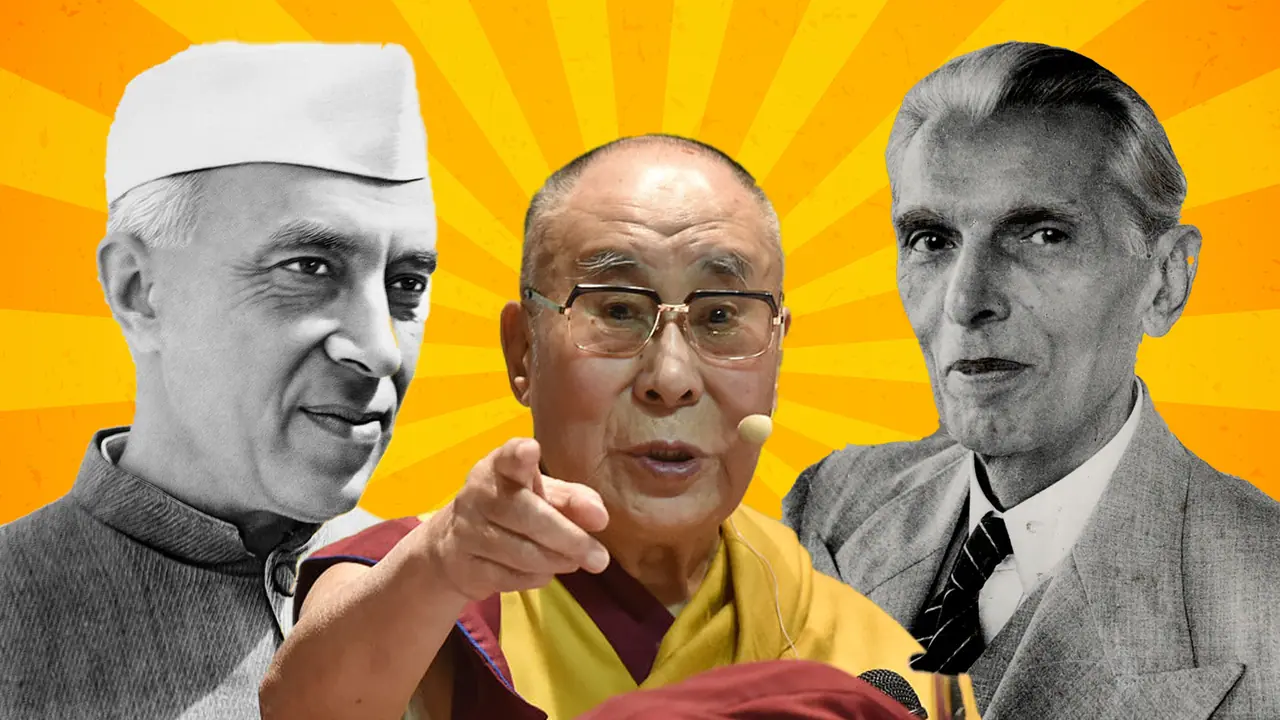When scientist Anand Ranganathan conducted a poll on Twitter, citing Dalai Lama’s statement in Panaji and asking users whether Jinnah would have made a better first prime minister of the country, an equal number of voters, mostly Indians, voted for the Quaid-e-Azam and Jawaharlal Nehru
Tibetan spiritual head, the Dalai Lama, who had got asylum in India under the condition that he wouldn’t indulge in political activism against China on the Indian soil, faces no constraint while making politically loaded statements concerning this country. His latest comment, citing Mohandas Karamchand Gandhi, that India would not have been partitioned if the Congress had agreed to make Muhammad Ali Jinnah the first Prime Minister has triggered a nationwide debate.
“Mahatma Gandhiji very much was willing to give prime ministership to Jinnah. But Pandit Nehru refused. I think Pandit Nehru was a little bit self-centred: ‘I should be prime minister’, If Mahatma Gandhi’s (wish) materialised then Indo-Pakistan (would have been) united. Pandit Nehru, I know very well, a very experienced person, very wise, but sometimes mistakes also happen. So u see responsibility is on your shoulder. Analyse, ask opinion, then take a decision,” the Dalai Lama, reacting to a question from a student of Goa Institute of Management in north Goa’s Sanquelim village, about 30 km from Panaji, said on Wednesday.
Scientist Anand Ranganathan floated a poll on Twitter using his popular handle, asking users (largely Indians) whether Jinnah would have been acceptable to them as the first Prime Minister or the politician who occupied the position in reality, Jawaharlal Nehru, was better any day. For a long time, Jinnah and Nehru went neck-and-neck in the poll, in which apparently cultural and economic right-wing Indians constituted the majority of voters.
This is a startling revelation of Indian thinking, given that Jinnah is a hated figure in this country owing not only to his advocacy of Pakistan but also to his call for Direct Action Day, a kind of a war crime that claimed the lives of thousands of people in Calcutta and other places of Bengal just before the nation was trifurcated, with its western and eastern wings separating as West and East Pakistan.
Curiously, this hypothesis is quite popular in the Sangh Parivar circles where swayamsevaks opine that the chief architect of Pakistan was terminally ill in 1947 and, therefore, humouring him would not have cost the nation much as he would die within a few months of the nation gaining Independence from British rule.
